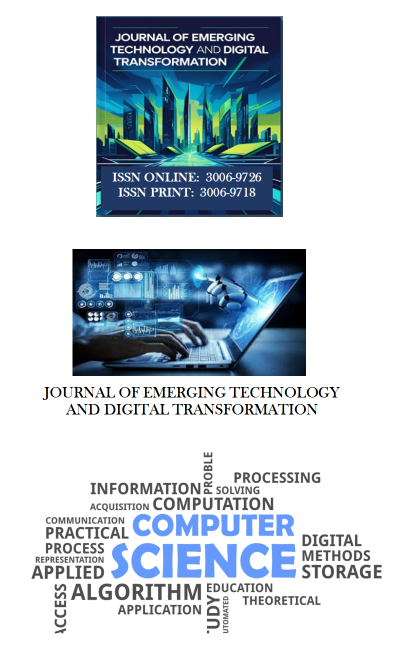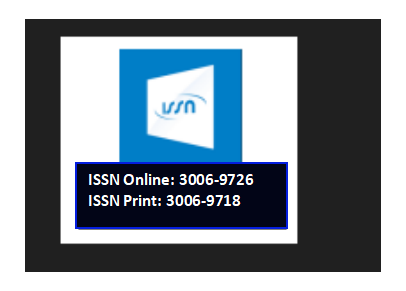
Peer Review Policy
1. Introduction
The "Journal of Emerging Technology and Digital Transformation" (JETDT) is committed to publishing high-quality, original research contributions in the rapidly evolving field of emerging technologies and their impact on digital transformation. To ensure the scientific merit and significance of published papers, JETDT employs a rigorous double-blind peer review process. This policy outlines the key principles and procedures governing this process.
2. Scope of Review
All submitted manuscripts undergo a double-blind peer review process. Reviewers are selected based on their expertise in the specific area of the manuscript and potential conflicts of interest are meticulously avoided. Each manuscript is reviewed by two independent reviewers who assess the following aspects:
- Originality and significance of the research question.
- Soundness of the research methodology and analysis.
- Clarity and coherence of the writing.
- Contribution to the existing body of knowledge in the field.
- Adherence to ethical research practices.
3. Reviewer Responsibilities
Reviewers are expected to:
- Maintain strict confidentiality regarding the submitted manuscript and the review process.
- Declare any potential conflicts of interest and recuse themselves if necessary.
- Provide an objective and constructive review based on the established criteria.
- Identify major flaws, inconsistencies, or ethical concerns.
- Suggest improvements to the clarity, coherence, and impact of the manuscript.
- Provide timely feedback to the editor within the designated timeframe.
4. Editorial Decision
Based on the reviewers' feedback, the editor will make an initial decision on the manuscript:
- Accept: The manuscript is deemed publishable without major revisions.
- Minor revisions: The manuscript requires minor changes to address specific points raised by the reviewers.
- Major revisions: The manuscript requires substantial revisions to improve its quality and meet publication standards.
- Reject: The manuscript does not meet the journal's criteria for publication.
The editor will communicate the decision to the corresponding author along with the reviewers' comments, maintaining anonymity. Authors are expected to respond to the feedback and submit a revised manuscript within the specified timeframe.
5. Revision and Resubmission
Authors have the opportunity to revise their manuscript based on the reviewers' feedback and resubmit it for reconsideration. The revised manuscript will be reevaluated by the editor or the original reviewers to ensure the revisions adequately address the raised concerns.










